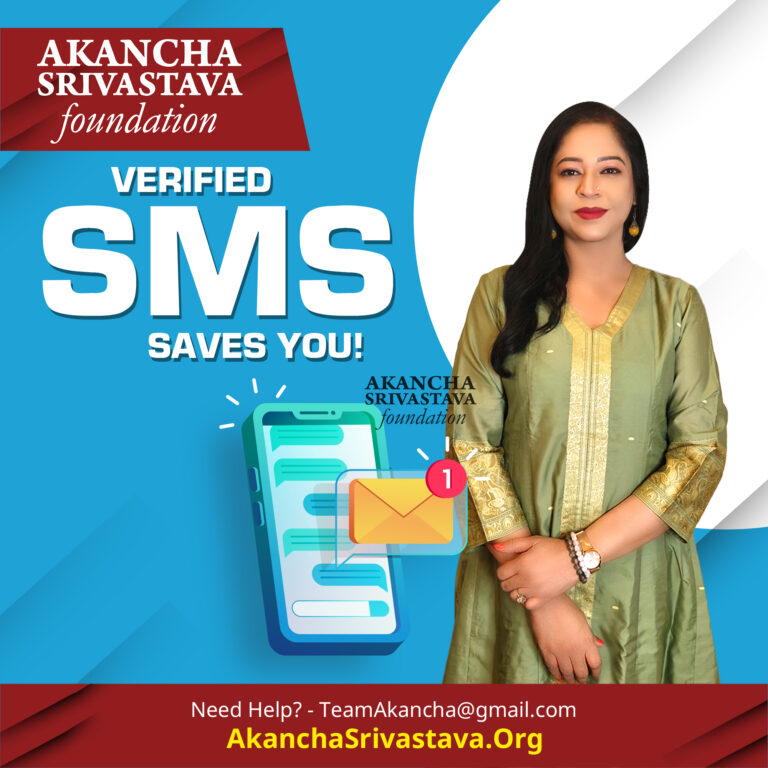Verified SMS Saves You!
In India, SMS verification tags — Transactional (T), Service (S), and Government (G) — serve as a critical safeguard in digital communication, enabling users to identify authentic messages from verified senders. These tags appear at the end of the SMS header, signifying that the sender has undergone a stringent vetting process mandated by the Telecom Regulatory Authority of India (TRAI) and telecom operators. This system is designed to ensure that only authorized entities can send messages under these categories, making it extremely difficult for fraudsters or imposters to obtain these tags.
There are also Promotional (P) messages which include advertisements and marketing content from verified businesses, sent within regulated timeframes. Though less critical than Transactional or Government messages, they are also subject to strict TRAI guidelines to protect consumers from spam.
Consider a real-life scenario: A user receives an SMS claiming to be from their bank, warning them of suspicious transactions and urging immediate action through a provided link. Without awareness of SMS tags, the user might click the link, exposing themselves to phishing and financial theft. However, the genuine bank messages carry a “T” tag, signifying a transactional message verified by regulators. Fraudulent messages rarely have these tags and often show inconsistencies such as spelling errors, unusual sender names, or suspicious URLs. Recognizing these differences can protect users from falling victim to scams.
The process to acquire these tags involves multiple layers of verification, including registration of the sender entity, approval of message content templates, and strict monitoring to prevent misuse. Because of these rigorous controls, it is near impossible for fraudulent actors to masquerade as legitimate senders within these verified categories.
Users are advised to:
- Always check for the T, S, or G tag at the end of the SMS header before trusting any message requesting personal or financial information.
- Avoid clicking on any links or sharing sensitive data if the message lacks these verification tags.
- Report suspicious messages to their telecom operator and relevant authorities promptly.
By understanding and leveraging the SMS verification system, individuals can significantly reduce the risk of falling prey to increasingly sophisticated SMS scams. Awareness and vigilance are essential weapons in today’s digital safety landscape.
Stay Aware, Stay Safe!
Jai Hind!
🔔 Subscribe for more cyber safety insights!
👍 Like, share & comment to spread awareness.
CONTACT US:
Website: www.AkanchaSrivastava.Org
Email: TeamAkancha@gmail.com
Twitter: @AkanchaS
Instagram: @akanchas
https://www.instagram.com/akanchas/
Facebook:
https://www.facebook.com/akanchasrivastava1
LinkedIn:
https://www.linkedin.com/in/akanchasrivastava/
ABOUT ‘AKANCHA SRIVASTAVA FOUNDATION’
The Akancha Srivastava Foundation is India’s leading social impact initiative dedicated to advancing cyber safety awareness and education. Established in February 2017, this not-for-profit Section 8 organization is a trusted voice in promoting safe online practices across the nation.
Distinguished Board of Advisors
Guided by an honorary advisory board of esteemed leaders:
- Former Special DGP RK Vij (Chhattisgarh Police)
- ADG Navniet Sekera (Uttar Pradesh Police)
- ADG Krishna Prakash (Maharashtra Police)
- Dr. Poonam Verma (Principal, SSCBS, Delhi University)
Our Mission
The Foundation is committed to educating, empowering, and building bridges between the public and authorities on critical cyber safety issues. Additionally, we specialize in forensics training for law enforcement, equipping them with the skills needed to tackle cybercrime effectively.

